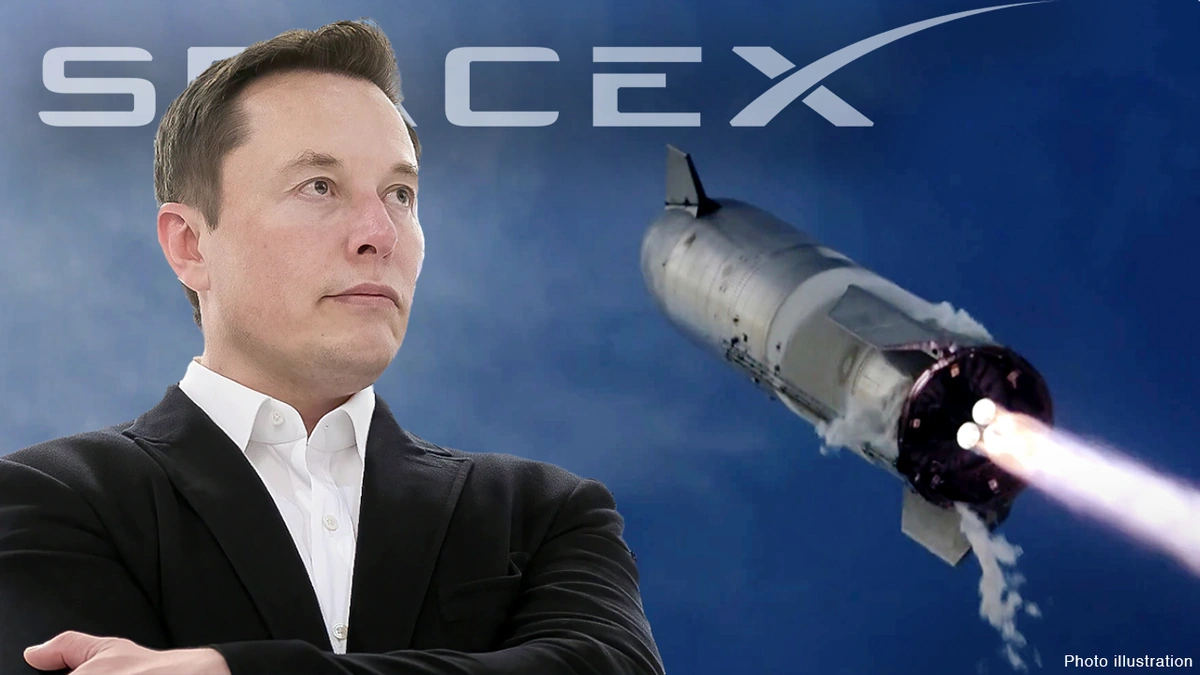Let’s grab a virtual coffee. You and me. We need to talk about SpaceX .
I know, I know. You see the headlines. Elon Musk posts something weird on X, a rocket launches, a rocket lands (which is still mind-boggingly cool), and we all move on. For many of us in India, it feels a bit distant, doesn’t it? A billionaire’s expensive hobby playing out on the other side of the world. We have ISRO, our pride, doing incredible things on a shoestring budget. So why should we dedicate any more brain space to this American space company?
Here’s the thing, and this is the crux of our chat today: looking at SpaceX as just another rocket company is like looking at Google in 1999 and seeing just a search box. You’d be missing the entire revolution that’s about to unfold.
What Elon Musk’s Elon Musk space company has actually done is fundamentally change the economics of space. And when you change the economics of something, you change everything. It’s not just about space anymore; it’s about the future of the internet, global competition, and even the very pace of human innovation. And that wave is already hitting our shores.
The Magic Trick That Made Rockets… Boring?

Remember watching those old rocket launches? Huge, majestic, and a one-time thing. The rocket would blast off, drop its massive, expensive stages into the ocean, and that was that. A multi-million-dollar piece of engineering, used once and then discarded.
Imagine flying from Delhi to Mumbai, and upon landing, the airline just… throws the entire Airbus A320 into the Arabian Sea. It sounds insane, right? That was the space industry for over 60 years.
Then came the Falcon 9 .
What fascinates me isn’t just the spectacle of the first-stage booster landing itself perfectly on a drone ship in the middle of the ocean. The real magic is what happened after the first few times. It became routine. It became almost boring. Launches started happening every few days, not a few times a year. And that’s the whole point.
SpaceX cracked the code of reusable rockets . By making the most expensive part of the rocket return to Earth safely, they slashed the cost of getting to orbit by an estimated 70-80%. This isn’t just an incremental improvement. It’s a complete paradigm shift. It’s the difference between writing a letter by hand and sending an email. One is a deliberate, expensive act. The other is something you can do 100 times a day without thinking.
This cost reduction is the single most important factor in the modern space race. It has turned space from a government-exclusive playground into a viable commercial arena. And that has massive implications for us.
Starlink | The Internet From The Sky and The Indian Dilemma

So, you can launch things cheaply. What do you do with that superpower? You launch a lot of things.
Enter Starlink. It’s SpaceX’s ambitious plan to blanket the Earth with tens of thousands of small satellites to provide high-speed internet to literally every corner of the globe. Think about the potential for India: a remote village in the Himalayas, a fishing boat off the coast of Kerala, or a relief camp after a natural disaster all could have access to fast, reliable internet.
The promise is enormous. But here’s where it gets complicated, especially for India. The conversation around Starlink India is a tricky one.
On one hand, you have the potential to bridge the digital divide in a way we’ve only dreamed of. On the other, you have a foreign company controlling a vital piece of our national infrastructure. There are huge regulatory questions about licensing, data security, and how it would compete with our homegrown giants like Jio and Airtel. The Indian government has, rightly, been cautious. You can learn more abouthow satellite internet workshere.
It’s a classic technology dilemma. Do we embrace this disruptive force for its benefits, or do we protect our domestic industry and strategic interests? There’s no easy answer, but the fact that we’re even having this conversation is a direct result of SpaceX making launches cheap enough to build a mega-constellation in the first place.
So, Is SpaceX a Threat to ISRO? Let’s Be Honest.

This is the big one. The question that comes up in every discussion. With our national pride so deeply invested in the incredible achievements of ISRO, it’s natural to view SpaceX with a competitive eye. The whole SpaceX vs ISRO narrative is compelling.
But I think it’s the wrong way to look at it. It’s not a simple zero-sum game.
Let’s be clear: ISRO is, and remains, an absolute world leader in what it does. Its mastery of frugal engineering is legendary. The Mars Orbiter Mission (Mangalyaan) cost less than the movie Gravity. The Chandrayaan missions have pushed the boundaries of lunar science. ISRO’s focus has always been on national development, scientific exploration, and strategic independence and it has succeeded spectacularly.
SpaceX, however, is playing a different game. It’s a commercial beast, driven by speed, scale, and a radically different risk appetite. It blows up prototypes (on purpose!), iterates at lightning speed, and is singularly focused on driving down costs to build a commercial empire in space.
What SpaceX has done is light a fire under the entire global space industry, including ISRO. It has shown what’s possible when you move away from traditional, slow-moving government contracting. And guess what? ISRO is responding. The development of its own Reusable Launch Vehicle (RLV-TD) is a clear sign that our space agency understands the new reality. Read about thefuture of Indian space missions.
In a way, SpaceX is the best kind of competitor one that forces everyone else to level up their game. The future of space travel will likely be a mix of both models: the steady, scientific approach of agencies like ISRO and the disruptive, commercial drive of companies like SpaceX.
FAQs | Your SpaceX Questions, Answered
What exactly is a reusable rocket?
Think of a two-stage rocket. The first stage is the big, powerful booster that gets the rocket off the ground and through the thickest part of the atmosphere. In the past, this stage was just dumped into the ocean. A reusable rocket, like SpaceX’s Falcon 9, has engines that can restart, grid fins to steer, and landing legs. After separating from the second stage, it flips around and flies itself back to Earth, landing precisely on a pad or a ship.
Is Starlink available in India yet?
As of late 2023, Starlink is not yet officially licensed to operate in India. The company has been in discussions with Indian regulatory bodies like TRAI and DoT for several years. The process involves navigating complex licensing, security, and spectrum allocation policies. So, for now, the wait continues.
How is SpaceX different from NASA?
This is a key distinction. NASA is a U.S. government agency focused on scientific research and exploration. It’s funded by taxpayers. SpaceX is a private company, founded and run by Elon Musk. However, they work together closely. In fact, NASA is one of SpaceX’s biggest customers, hiring them to launch satellites and fly astronauts to the International Space Station through theCommercial Crew Program. NASA sets the destination; SpaceX often provides the taxi service.
Who owns SpaceX? Is it a public company?
SpaceX is a privately held company. This means it’s not traded on the stock market like Tata or Reliance. The majority owner and key decision-maker is its founder, Elon Musk, along with other private investors and employees who own shares.
What is the Starship rocket I keep hearing about?
If Falcon 9 is the workhorse, Starship is the moonshot. It’s SpaceX’s next-generation, fully reusable spacecraft designed to take humans to Mars. It’s massive, incredibly powerful, and represents the ultimate goal of the company. Its development is a high-risk, high-reward project that is still in the experimental testing phase.
The real story of SpaceX isn’t the rockets, the landings, or even Elon Musk. It’s the silent, seismic shift it has created. It has fundamentally changed the question from “Can we go to space?” to “How cheaply and quickly can we build a business in space?”
That new question is echoing in the halls of ISRO, in the offices of Indian startups, and in government policy meetings. It’s a challenge and an opportunity. The next time you see a Falcon 9 nail another landing, don’t just see a spectacle. See a new reality being built, one launch at a time. And it’s a reality India will have a huge role in shaping.




